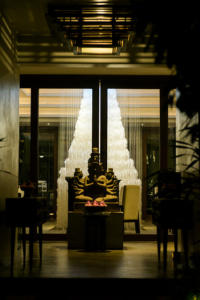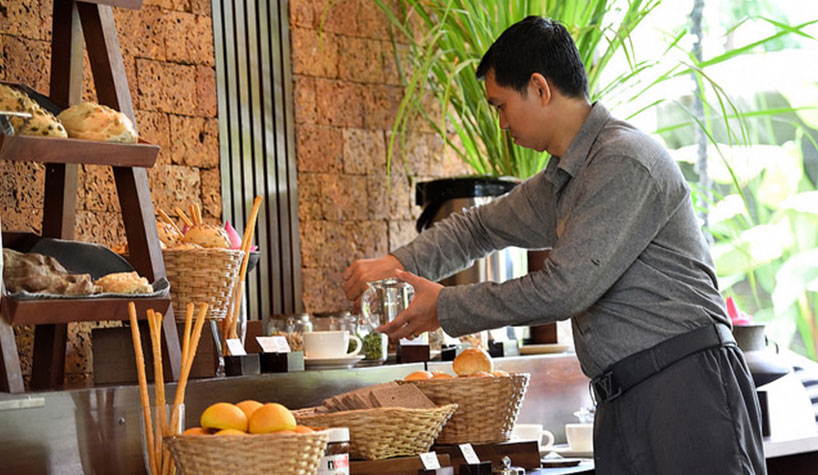SIEM REAP, CAMBODIA—Each one, teach one. It’s an African-American proverb that has its roots in slavery, a time when the enslaved were denied an education. When a vital life skill such as reading or writing was learned, it was their duty to teach another person.
A life without education and opportunities is like a bird without wings. It is a life without freedom. While some hoteliers talk about the importance of education and training, here at the Jaya House River Park that notion is put into practice through life-changing educational programs.
“I am inspired by the most amazing people of Cambodia, their resilience, their positive attitude, their amazing personalities and even though they have suffered so much, they continuously strive for a better future,” said Christian De Boer, managing director, Jaya House River Park.

De Boer gathers his employees up under his wings, treating them like family. “Happy staff means happy guests,” he said. “This is one of the many lessons I learned from Sir Richard Branson [founder of Virgin Group.] I believe it’s my job to take away any problems my staff might have so they, in turn, can focus on our guests.”
Working in hospitality for many years, De Boer developed a love of travel. He’s worked in Lagos, Nigeria, Paris, Singapore, Vietnam and eventually settled in Siem Reap, Cambodia. It is here that he’s shared the lessons learned through the years with his team, focusing on education, healthy eating and sustainability.
Here’s how De Boer’s three pillars are in focus:
Education: Jaya House is the only hotel in Southeast Asia that pays for English classes for all of its employees, according to De Boer. An education helps to foster improved communication and service to guests. Education also offers the potential for opportunities for younger generations.
Healthy Eating: In Siem Reap, many residents can only afford to eat fish and rice; and often, it’s only once a day. Jaya House provides their employees with vouchers that enable them to purchase fresh vegetables, meat and fruit.
Sustainability: De Boer created a program called Refill Not Landfill in an effort to reduce plastic waste by eliminating use of plastic bottles and replacing them with aluminum bottles that tourists can refill at stations throughout the country. The program has now expanded into six other countries.
“Cambodia currently suffers from a lack of knowledge and information,” he said. “I have 43 staff out of 107 that have never had the opportunity to go to school and I am fortunate to be able to offer this education now under the philosophy of ‘it’s never too late to learn.’ Our turnover is almost none, which means my staff is perhaps more experienced than the staff at other hotels, my staff is definitely happier than the staff at other hotels because they feel valued—which they indeed are.”
De Boer shares the secrets to his hotel’s success:
“Spend money on staff education.”
“Employ only local staff in order to create futures and a possible career path. Buy local in order to create supply chain jobs.”
“Provide equal opportunities for the less fortunate, including the handicapped people from Cambodia. As one of the very few hotels, we employ some paralyzed staff and otherwise disabled Khmer.”
“Happy staff means word-of-mouth, which, in this day and age, is far more powerful.”
“Become or aim to become plastic-free and lead the industry. Currently we are 95% plastic-free.”
“Create a proven track-record, which is easily verifiable. In 2018, actions speak louder than words.
